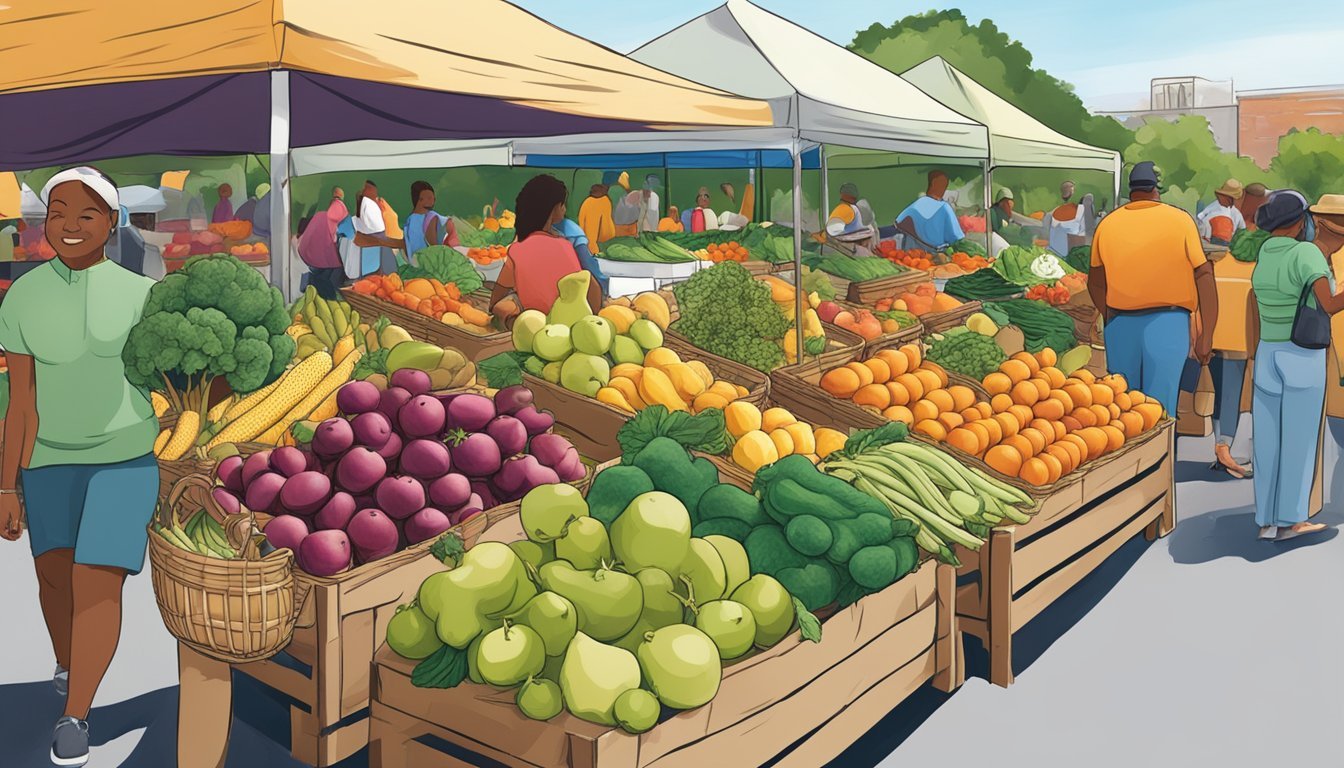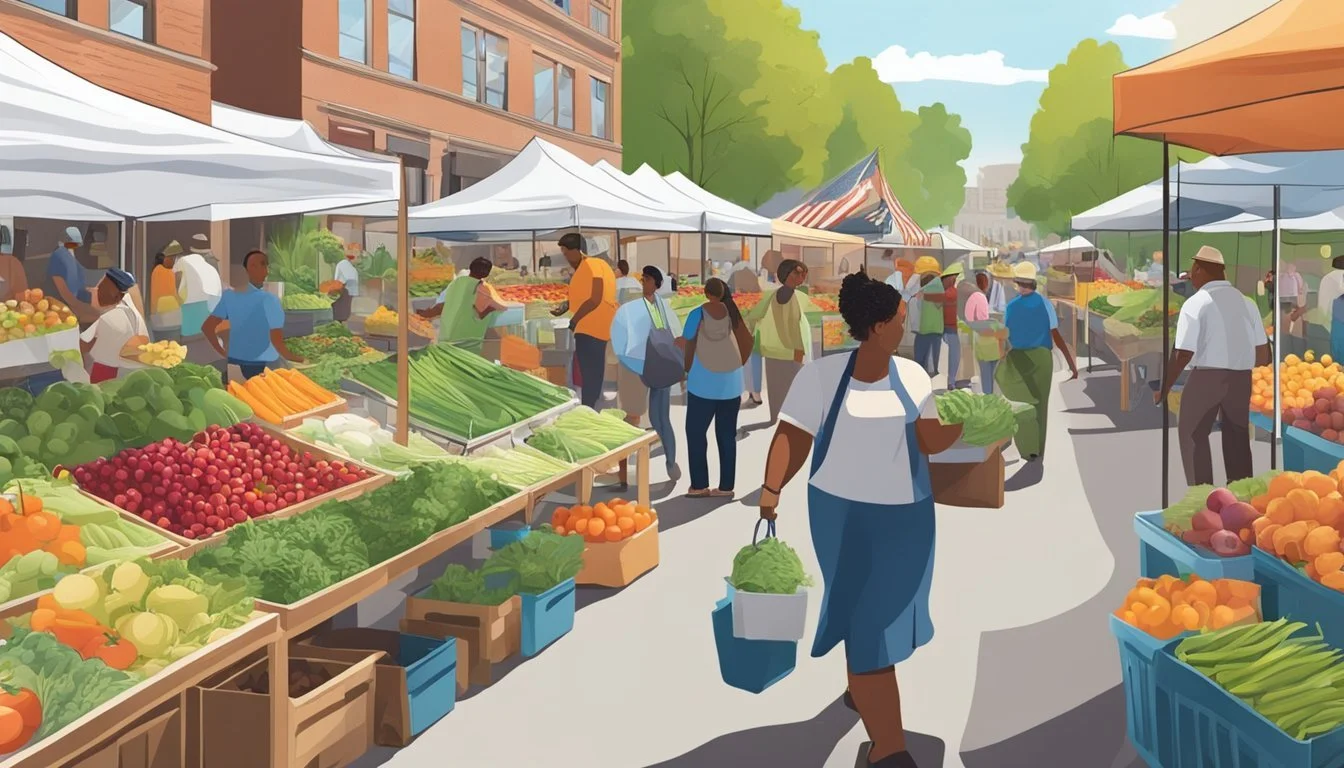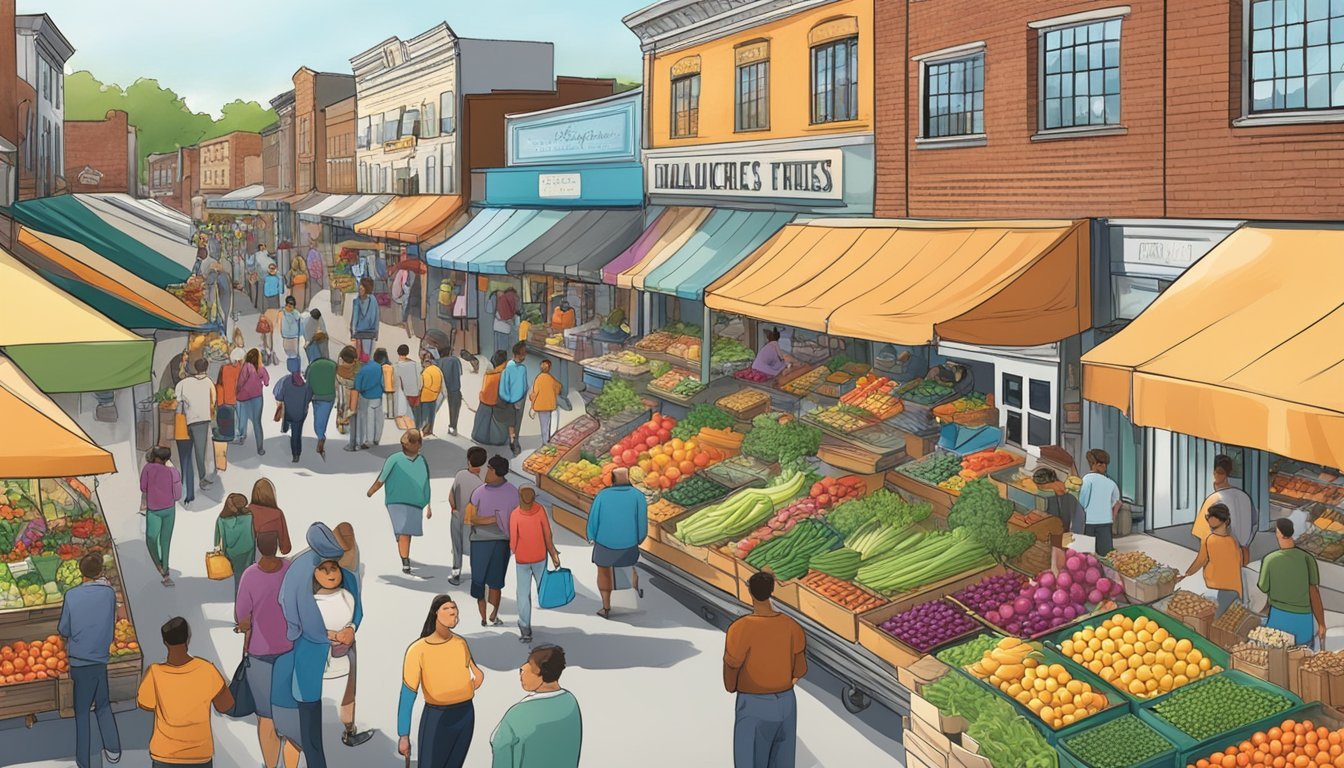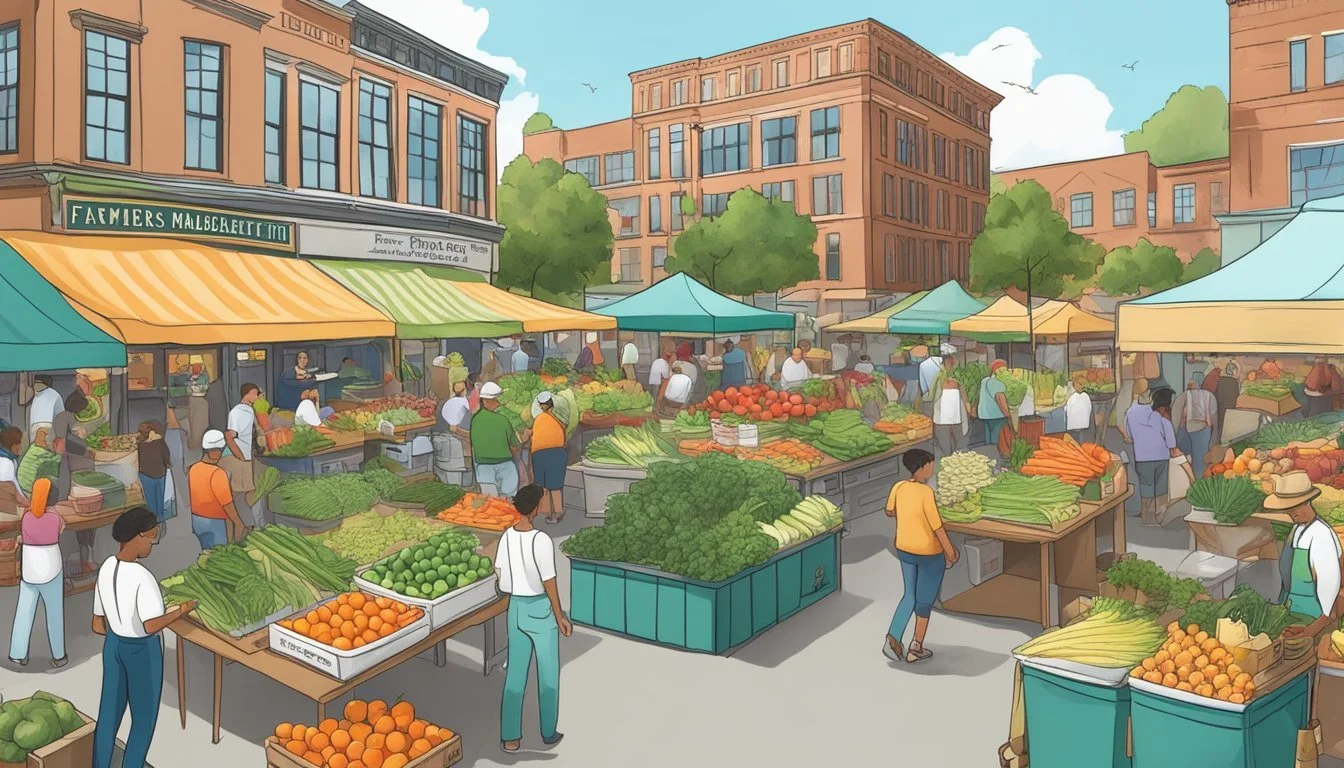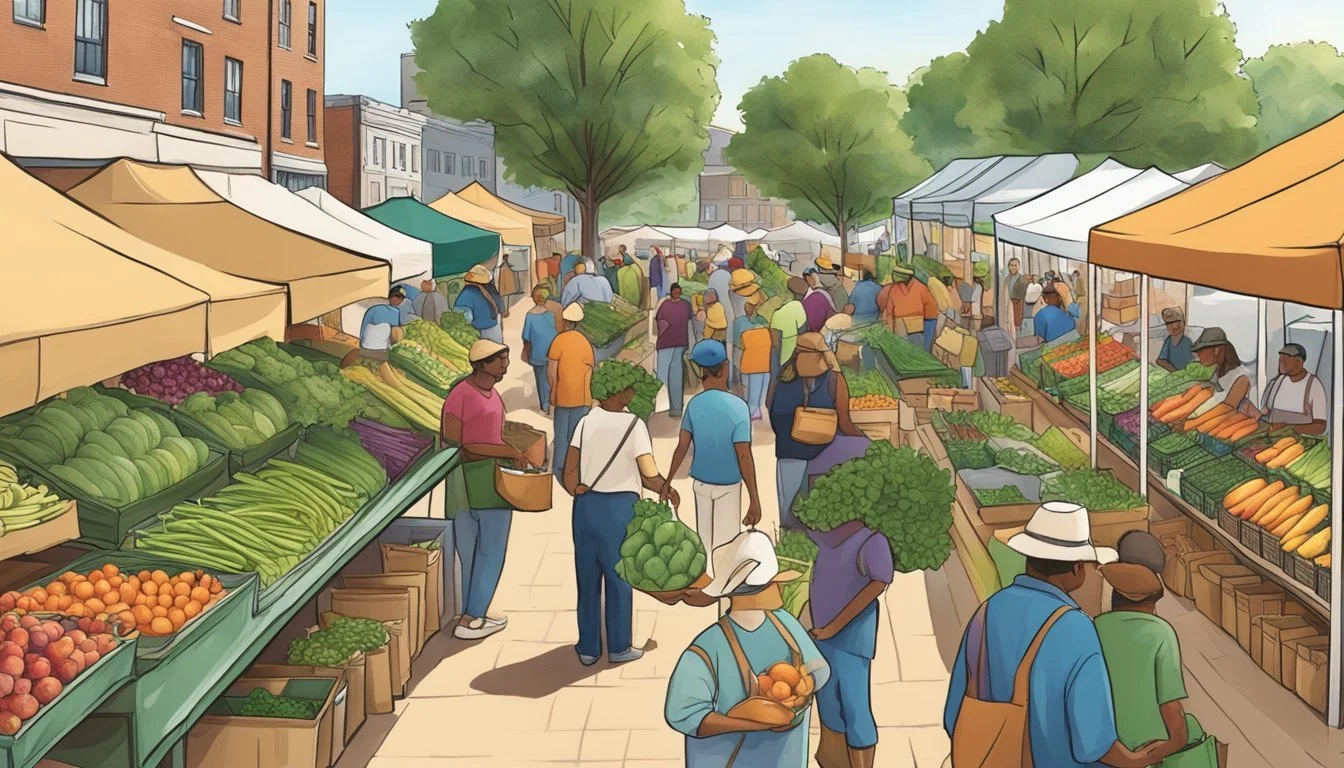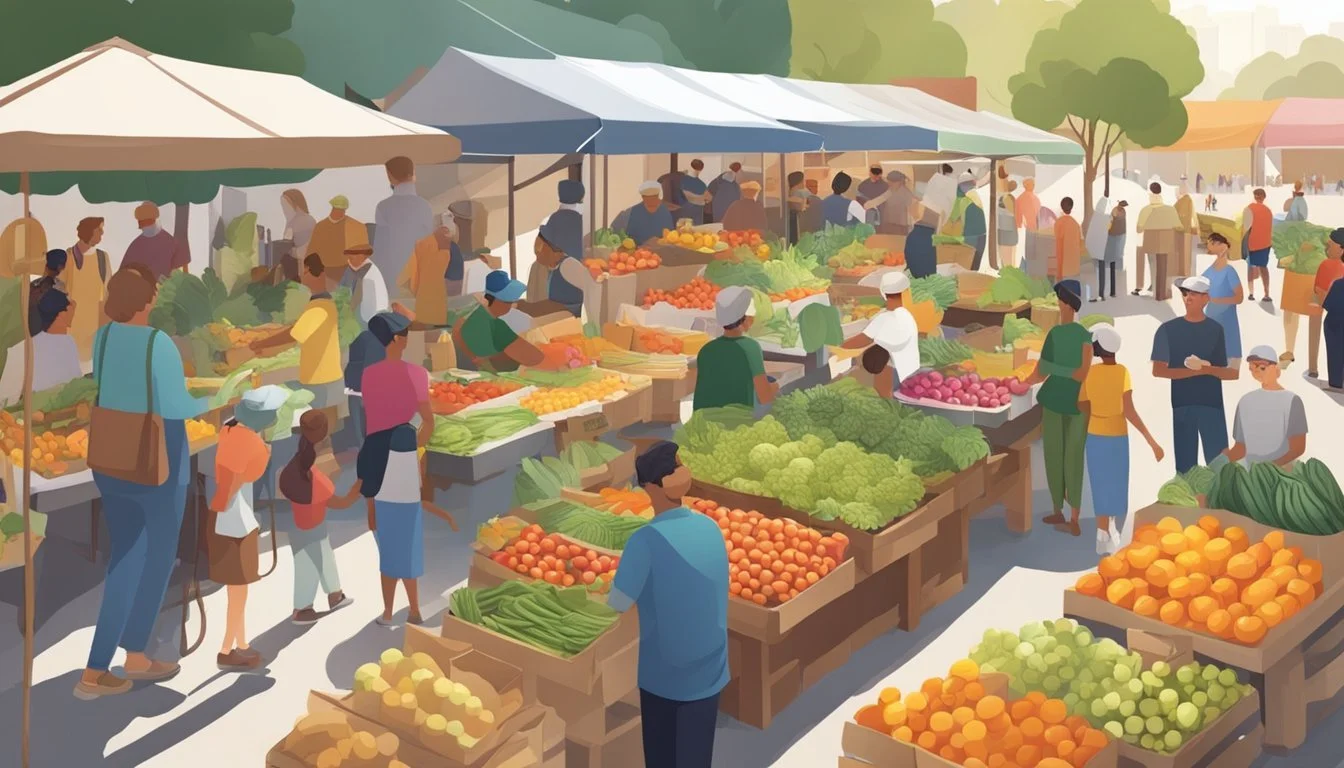Community Supported Agriculture (CSA) in Elizabeth, NJ
A Guide to Local Produce Partnerships
Community Supported Agriculture (CSA) has established itself as a cornerstone of local food economies, especially in regions like Elizabeth, NJ. The concept centers around a partnership between local farmers and community members who pledge support to a farm operation, ensuring a market for the farm's produce. This symbiotic relationship allows residents of Elizabeth and the broader New Jersey area to enjoy fresh, seasonal produce directly from a farmer. CSA members typically receive a share of the harvest throughout the farming season, fostering a connection to the rhythm of agricultural life and promoting sustainable practices.
In Elizabeth, NJ, the CSA model adapts to urban settings by connecting city dwellers with regional agricultural operations. The local CSA programs offer a variety of share options, accommodating different household sizes and dietary preferences. The commitment to participate in a CSA not only secures a supply of fresh produce but also educates members on the importance of seasonal eating and the challenges of small-scale farming. This engagement with food production enhances the overall appreciation for locally grown food and has positive implications for community health and the local economy.
The New Jersey landscape boasts a number of farms within driving distance of Elizabeth, providing ample opportunity for residents to join a CSA program. Options may include traditional vegetable shares, as well as the inclusion of fruits, herbs, and other farm products. Farms such as Alstede Farms in Chester, NJ, have cemented their presence in the state's CSA scene, emphasizing the preservation of farmland and a dedication to quality produce. With the abundance of CSA choices in the region, consumers are empowered to support local agriculture and eat healthily.
Understanding CSA
Community Supported Agriculture (CSA) offers a model where individuals purchase memberships to receive a share of a local farm's harvest, thus fostering a close connection between consumers and their food sources.
Origins of CSA Models
The concept of CSA began in the early 1960s in Germany, Switzerland, and Japan as a response to food safety concerns and the urbanization of agricultural land. It arrived in the United States in the 1980s. CSA models promote direct relationships between local farmers and community members, who share the risks and benefits of food production.
Benefits of Joining a CSA
Members benefit from a regular supply of fresh, local produce and often gain access to higher-quality foods at competitive prices compared to retail outlets. They also contribute to sustainable farming practices and the local economy. In return, farmers receive financial support upfront, helping them plan and manage their operations with more security.
Typical CSA Structure
A CSA operates on the basis of members purchasing a share of the farm's anticipated harvest. This share may include a variety of vegetables, fruits, and even add-on items such as eggs or honey, depending on the farm's offerings. Distributions are typically weekly or bi-weekly, for a set season length, which is often the duration of the local growing season.
CSA Member Responsibilities
Members of a CSA inherently agree to share in the risks of farming, which may include poor harvests due to unfavorable weather or pests. They often have the opportunity to engage more directly with where their food comes from, sometimes including volunteer opportunities on the farm. Payment structures can be one-time or in installments, with the expectation that members commit for the entire season.
Local CSA Farms in Elizabeth, NJ
Community Supported Agriculture (CSA) connects consumers in Elizabeth, NJ directly with local farmers, providing them with fresh, seasonal produce while supporting the local agriculture sector. The following farms offer CSA programs to residents of Elizabeth and the surrounding communities, embodying a commitment to sustainable and organic farming practices.
Genesis Farm
Genesis Farm offers year-round CSA memberships with various options ranging from half-year shares to weekly year-round shares. Established in 1988, the farm is renowned for its adherence to community and sustainability, delivering fresh produce through both on-farm pick-ups and designated satellite locations.
Honey Brook Organic Farm
As New Jersey's longest-running certified organic CSA farm, Honey Brook Organic Farm has been supplying Elizabeth and the region's residents since 1991. Their commitment to organic methods results in a wide array of fruits, vegetables, herbs, and flowers known for superior taste and quality.
Fernbrook Farm
Fernbrook Farm, with its dedication to community engagement and education, brings a variety of produce to its CSA members within the Elizabeth area. By focusing on organic farming techniques, Fernbrook ensures that each CSA share is filled with nutrient-rich and responsibly grown produce.
Ort Farms
Ort Farms connects the people of Elizabeth to the farming experience by offering a range of seasonal CSA shares that include freshly harvested produce. This family-run farm prioritizes creating a direct link between local farmers and consumers, emphasizing the importance of knowing where your food comes from.
What to Expect With CSA Shares
When joining a Community Supported Agriculture (CSA) program in Elizabeth, NJ, participants purchase shares of a farm's harvest. These shares provide regular allotments of farm produce, reflecting the seasonal nature of farming and emphasizing local distribution networks.
Share Types and Sizes
Weekly Share: Typically, a standard share is designed to feed a family of 2-4 people per week.
Half Share: Some CSAs offer smaller portions, or half shares, suitable for individuals or smaller households.
Full Share: A robust assortment of seasonal produce.
Bi-Weekly Share: An option for less frequent distributions, which can cost between $350-$400.
Seasonal Availability
CSA farm shares mirror the agricultural cycle and are abundant with seasonal produce. Participants can expect a variety of fruits and vegetables changing throughout the spring, summer, and fall.
Summer Planting: Includes summer fruits, tomatoes, and squash.
End of Season Harvesting: Often involves root vegetables and sturdy greens that can withstand cooler temperatures.
Pick-Up and Delivery Options
Distribution: Most CSAs operate with specific pick-up locations where shares are delivered for members to collect.
Delivery: Some programs might offer home delivery services, possibly influencing the overall cost.
Local Pick-Up: Often at the farm or at designated community spots.
Delivery Service: Check availability and additional fees for direct delivery options.
Members should inquire directly with the CSA for specific details on pick-up times and locations or availability of delivery services in Elizabeth, NJ.
Supporting Local Economy and Sustainability
Community Supported Agriculture in Elizabeth, NJ, serves as a vital catalyst for bolstering the local economy and promoting sustainable farming practices. Through direct sales and community engagement, local farmers benefit from stable revenue streams, while consumers enjoy fresh, seasonal produce.
Impact on Local Economy
Community Supported Agriculture (CSA) directly bolsters Elizabeth's local economy by establishing a financial lifeline between consumers and producers. Individuals who participate in CSA programs pay local farmers upfront for a share of the harvest, ensuring a reliable income for the farmers and an investment in the local economy. This model supports local jobs and keeps money circulating within the community.
Direct Financial Impact: By paying upfront, members provide farmers with early-season capital, crucial for the growth and sustenance of their operations.
Local Job Creation: Sustainable farming operations, buoyed by CSA, often employ local workers, which helps decrease unemployment rates and boosts economic activity in the region.
Promoting Sustainable Farming
CSAs advocate for sustainable farming practices that are less intensive and more in harmony with the local ecosystem. They aim to minimize environmental impact, thus contributing to a healthier Elizabeth, NJ, and a more resilient agriculture sector.
Use of Ecological Practices: Farmers involved in CSA tend to favor techniques that preserve soil health, biodiversity, and reduce the need for harmful chemicals.
Seasonality and Biodiversity: CSA promotes the growth and consumption of seasonal produce, which aligns with natural growth cycles and helps maintain biodiversity.
Farmers markets in Elizabeth complement the efforts of CSAs by creating additional venues for farmers to sell their goods and interact with the local community, fostering an environment where sustainable agriculture thrives.
Seasonal Recipes and Cooking Tips
When one receives a CSA share in Elizabeth, NJ, they're presented with an array of fresh produce that can vary by season. Here, valuable tips and recipes are detailed to ensure that individuals make the most of their seasonal ingredients.
Utilizing Fresh Produce
When cooking with a CSA share, one must first understand what's in their box to utilize the produce efficiently. They should identify the variety of vegetables and fruits provided and determine the shelf-life to prioritize usage. For instance, leafy greens should be used earlier than root vegetables, which last longer.
Storage Tips for Fresh Produce:
Leafy Greens: Store in the refrigerator wrapped in a paper towel to absorb excess moisture.
Root Vegetables: Keep in a cool, dark place; they can last for weeks.
Fruits: Most should be kept at room temperature until they ripen.
Recipes should focus on ingredients that are at their peak. A CSA box in summer may inspire a tomato basil salad or a berry crumble for dessert. Conversely, a fall box can lead to a warming butternut squash soup or a roasted root vegetable medley.
Cooking with Seasonal Ingredients
The key to cooking with seasonal ingredients is flexibility and creativity. Recipes are a guide, but when one has a plentiful supply of, for example, zucchini, they can add it to stews, grate it into salads, or even bake it into bread.
When fresh herbs like basil and cilantro are abundant, one can make pesto or chimichurri, which can elevate even the simplest dishes. They can also take center stage in dishes like herb-infused omelets or herb roasted chicken. (What wine goes well with roasted chicken?)
Incorporation Tips:
Vegetables: Roast, steam, or grill to bring out natural flavors.
Herbs: Use them to make sauces or as a garnish to add freshness.
Fruits: Great for baking, making jams, or as a sweet addition to salads.
Cooking with seasonal ingredients from a CSA not only enhances the flavor profile of dishes but also supports local agriculture and promotes a sustainable food culture in Elizabeth, NJ.
Connecting with the Community
Community Supported Agriculture programs in Elizabeth, NJ, serve as a nexus for local community engagement, fostering unique relationships between residents and farmers. These initiatives invite members to participate in a food system that is intimate and trust-based, with a focus on both social and agricultural connections.
CSA Events and Gatherings
CSA events are designed not only to distribute fresh produce but also to bring people together, creating a space for neighbors to connect and engage with each other. They may include:
Farm Visits: Members are often invited to visit the farm, which serves as an excellent opportunity to learn about the agricultural process and see where their food originates.
Seasonal Festivities: Many CSAs host events tied to farming milestones, such as harvest festivals, planting days, and cooking demonstrations, adding a communal flavor to the experience.
Building Relationships with Farmers
The core of a CSA is the symbiotic relationship between the farmer and the community. Two key elements in this relationship are:
Transparency: Farmers share their agricultural practices, challenges, and successes, creating a sense of involvement and investment among members.
Direct Communication: Personal relationships are cultivated through regular interaction, allowing members to ask questions and get to know their farmers on a first-name basis, thus reinforcing the community bond.
By participating in CSA programs, residents of Elizabeth have a direct hand in supporting local agriculture while forming enduring connections within their community.
Additional Products and Subscription Options
In Elizabeth, NJ, Community Supported Agriculture (CSA) programs offer more than just seasonal vegetables. Subscribers can choose from a variety of products and flexible subscription models tailored to fit diverse needs and preferences.
Beyond Vegetables - Meat, Cheese, and More
Meat: For those interested in locally-sourced meats, several CSAs in the Elizabeth area provide options for beef, poultry, and pork. Meat shares are often available as an addition to vegetable subscriptions or as standalone options.
Cheese and Eggs: Artisanal cheeses and farm-fresh eggs are popular add-ons. Members can typically add these items to their weekly or bi-weekly shares, ensuring a supply of fresh, organic dairy products and eggs.
Fruit and Flowers: Seasonal fruits and beautiful flower bouquets complement the CSA shares. These items may be included periodically or offered as separate subscription options for members seeking to support local orchards and flower farms.
Flexible Subscription Models
Full and Bi-Weekly Shares: CSAs typically offer a choice between full shares, which provide a weekly box of goods, and bi-weekly shares, which cater to smaller households or those with lesser consumption needs. These shares might range in cost, but one can expect to pay around $350-400 for bi-weekly shares and $600-650 for full shares.
Discounts and Installments: To make their programs accessible, farms may offer discounts for early sign-ups or multiple season commitments. Payment plans, such as a series of installments, allow consumers to support their local farmer at the beginning of the growing season when it is most needed.
How to Get Involved
To become a part of the local food movement in Elizabeth, NJ, individuals are encouraged to join a Community Supported Agriculture (CSA) program. By investing in a share of a local farm's harvest, members receive fresh produce while supporting local agriculture and gaining knowledge about seasonal food.
Finding a CSA Near You
Residents can find a CSA in the Elizabeth area by utilizing resources such as LocalHarvest.org, which offers a comprehensive search form to locate nearby farms. Additionally, Edible Jersey, part of the Edible Communities at ediblecommunities.com, is a valuable asset for those seeking to eat, drink, and shop local. They can guide individuals on how to find your edible options, including local CSAs.
LocalHarvest.org: A robust platform with a specialized search tool for finding local CSA programs.
Edible Jersey: Offers insights and listings about local food producers and CSA programs.
Starting Your CSA Membership
Once a local CSA is identified, the process of starting a membership generally involves filling out a sign-up form provided by the CSA. The sign-up period typically occurs before the growing season begins, allowing the farm to plan accordingly for the number of shares. Membership fees are usually required upfront, either as a one-time payment or in installments. These fees contribute to the farm's operating expenses and, in return, members receive fresh, locally-sourced produce throughout the season.
Sign-Up: Contact the CSA to complete the necessary forms.
Membership Fee: Pay the determined amount to secure a share of the farm's harvest.
By participating in a CSA, individuals can directly support their local farmers and receive healthy, fresh produce during the harvest season.
CSA Member Testimonials and Satisfaction
This section gathers insights from individuals in Elizabeth, NJ who have participated in CSA programs, reflecting on their experiences and levels of satisfaction.
Stories from CSA Members
CSA members in Elizabeth share a common enthusiasm for the weekly supply of fresh produce they receive. A local teacher mentions, "The quality and variety in each week's share are outstanding, and there's nothing like eating vegetables that were in the ground just days ago."
An accountant living in the neighboring community notes, "Participating in a CSA has changed how my family views mealtime. We've developed a deeper connection to our food and appreciation for the farmers' hard work."
Service and Satisfaction Levels
Member Satisfaction: CSA programs around Elizabeth, NJ, tend to score high in satisfaction. A simple tabulation of member feedback reveals the following satisfaction levels:
Satisfaction Rating Number of Members Highly Satisfied 45 Satisfied 30 Neutral 5 Unsatisfied 2 Highly Unsatisfied 0
Communities near Elizabeth find that CSA programs provide more than just food; they enrich members' understanding of agriculture. The article has found that members not only receive their weekly supply of farm-fresh goods but also report increased contentment from supporting their local farmers.

